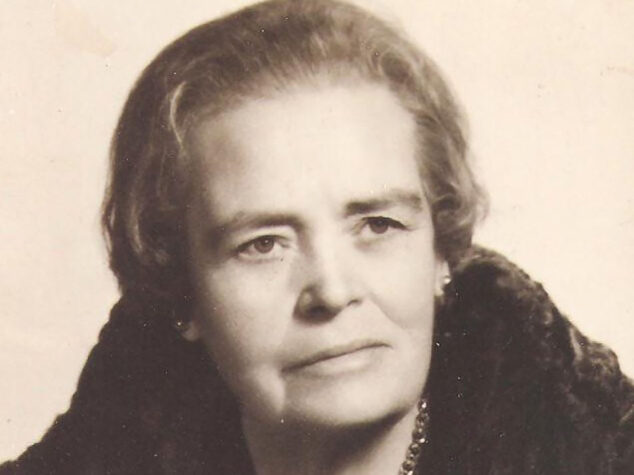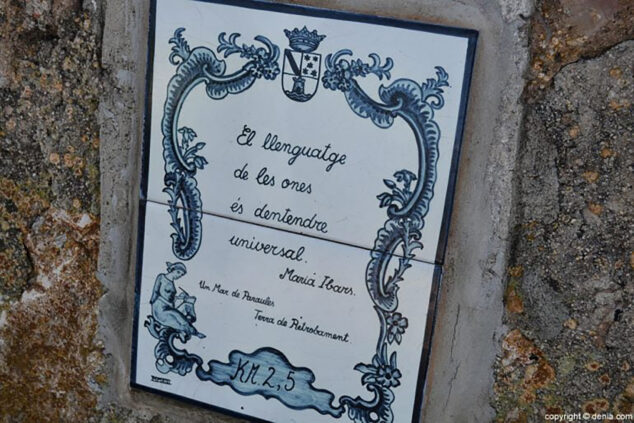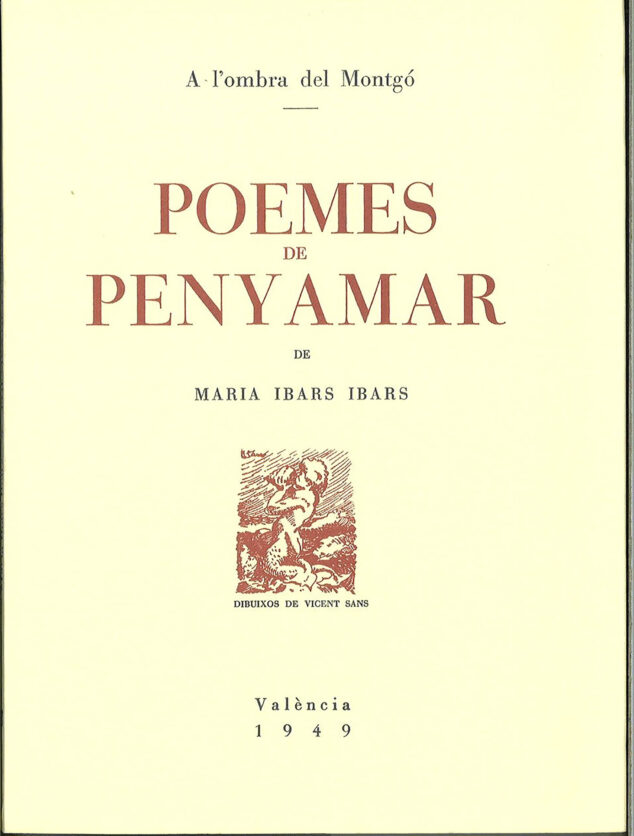«Sing, maiden, that Déu
in donar-te dolça veu
"et va fer per a sing"
Ana María Ibars Ibars, a Dianense by heart, wrote these verses in 1949. She also had a voice that should be heard and she expressed it in all facets of her life: writer, teacher and activist. Although she was of a Catholic and traditional ideology, she fought all her life for the promotion of the Valencian language, the modernization of teaching and the end of injustices towards women.
Maria was born in Valencia on February 29, 1892 into a humble family that moved to Dénia when she was a few months old. Her parents worked in the service for one of the richest families in the city, who are suspected of having paid for her education, according to researcher Carles Mulet i Grimalt in the report "Ana María Ibars: Mestra i Dona" by the La Font City Council. of the Figuera.
Having studies with a working-class background was something unusual at that time. She Maria she achieved it: at the age of 19 she obtained the teaching qualification after studying Teaching at the Normal School of Teaching of Valencia. It was then when her ideals, like those of any young person who begins to discover the world, began to form. For this she had the help of Carles Salvador, a friend of hers whom she met at that time and who influenced the writer, introducing her to his ideas of renewal of teaching and the appreciation of Valencian.
La Font de la Figuera: teaching and romance
With these new thoughts and a suitcase in hand, after finishing Maria's training, she was assigned to Font de la Figuera in 1916. According to the witnesses who appear in the aforementioned documentary, Maria was an innovative teacher: she created the first library in the town and He also taught the male sex, something frowned upon and which led to a complaint, one of the reasons why he left the town. However, thanks to her lessons, the children were able to work as postmen.
It was in Font de la Figuera where she met love through Vicente Payá Pla, with whom she married and had two children: Raquel, born in 1918, and Darío, born in 1919. When both children began their higher studies in Valencia , the teacher decided to move with them in 1934. The one who did not accompany them was her husband, who worked in Alcázar de San Juan (Castilla-La Mancha), as reported in the documentary, so they maintained a long-distance relationship.
His first writings
Alone but well accompanied, Maria Ibars once again interacted with Carles Salvador and other intellectuals and then began another stage of her life, resuming the vindictive personality of her youth. In 1935 she signed up for her friend's classes at the Center de Cultura Valenciana. She began collaborating with media such as The Provinces o The Vers Valencia. In addition, he participated in institutions such as the Consell de Cultura i Relacions Valencianes. She always acted under two premises: promoting Valencian and the most modern forms of teaching.
Once the Civil War begins, he disappears from the literary scene. Already in the postwar period, despite Franco's restrictions on native languages, the writer managed to cultivate the genre of poetry in Valencian with her publications in the Almanacs de The Provinces or magazines like Thought and Fet y L'Altar del Mercat, in addition to participating in the Llibrets de Fallas.
His work and love for Dénia
Maria never stopped thinking about the city where she grew up, Dénia. In fact, in her writings it was common for her to use the phrase "in the shadow of Montgó" as a dedication to her. In 1949 she paid tribute to the town with her first book, Poemes de Penyamar, poems dedicated to the area where Dianense had his house. It was this year when she also, for the first time, participated in the Jocs Florals de València with vines plans, a novel, winner in its category and that would be published in 1962. In 1950 she would win the contest again together with Sofía Salvador for The conversion of the games.
Maria, insatiable and full of words to tell the world, continued with collaborations in magazines such as Glorieta i Sicània y La Marina, where he continued cultivating verse. It was in those sixties when he published many of his works: in 1965, The last serf; between 1961 and 1967, stories about him come to light with Our Faulelles. He also wrote novels in Spanish: in 1961 it was published like a claw (1961) and in 1963 emerges Graciamar.
Most of his work was based on the novel genre and a recurring theme was the capital of the Marina Alta, in addition to the denunciation of sexist and violent attitudes against women. The voice of this writer, who so liked to be heard, gradually faded away. She spent her last years in Dénia, alternating with Madrid. However, she finally died in Valencia on January 9, 1965. Silence remained from her transgressive voice.
And although this writer is no longer present in Dénia, the city does not forget her. In honor of her figure, one of the secondary education institutes in the city is named after her, the IES Maria Ibars. In addition, the Valencian Academy of Language has declared 2024 as "Maria Ibars Year", holding a ceremony last Thursday, February 29 in the town to present this tribute.









